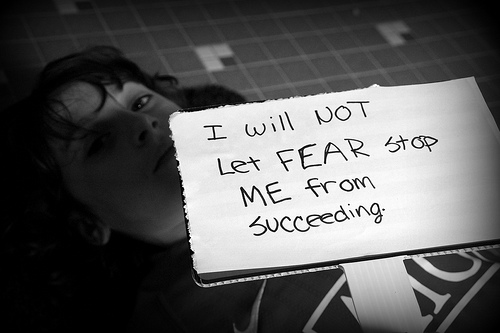 Taking care of yourself is the foundation on which all other pathways to self esteem rest. Without a basic willingness and ability to care for, love, and nurture yourself , it is difficult to achieve a deep or lasting experience of self worth.
Taking care of yourself is the foundation on which all other pathways to self esteem rest. Without a basic willingness and ability to care for, love, and nurture yourself , it is difficult to achieve a deep or lasting experience of self worth.
Perhaps you had the good fortune to receive the love, acceptance and nurturing from your parents that could provide you with a solid foundation for self esteem as an adult. Presently you are a free of any deep seated feelings of insecurity and your path to self esteem is likely to be simple and short, involving certain changes in attitude habits, and beliefs. For those who have carried a lifelong sense of insecurity, through, the way to self worth involves developing the ability to give yourself what your parents couldn’t. its possible to overcome deficits from your past only by becoming a good parent yourself.
What are some of the childhood circumstances that can lead you to grow up with feelings of insecurity or inadequacy?
1. Overly critical parents: parents who were constantly critical or set impossible high standards of behavior many have left you feelings of guilt; that somehow you could “never be good enough.” As an adult, you will continue to strive for perfection to overcome a long standing sense of inferiority. You may also have a strong tendency toward self criticism.
2. Significant childhood loss: if you were separated from a parent as a result of death or divorce, you may have been left feeling abandoned. You may have grown up with a sense of emptiness and insecurity inside that can be very intensely by losses of significant people in your adult life.
3. Parental abuses: physical and sexual abuse is extreme forms of deprivation. They may leave you with a complex mix of feelings, including inadequacy, insecurity, lack of trust, guild and or rage. Adults who were physically abused as children may become perpetual victims or may themselves develop a hostile posture toward life, victimizing others.
4. Parental alcoholism or drug abuse: much has been written in recent years on the effects of parental alcoholism on children. Chronic drinking or substance abuse creates a chaotic, unreliable family atmosphere in which it is difficult for a child to develop a basic sense of trust or security.
5. Parental neglect: some parents, because they are preoccupied with themselves, their work, or other concerns, simply fail to give their children adequate attention and nurturing. Children left to their own devices often grow up feelings of insecurity, worthless, and lonely. As adults they may have a tendency to discount or neglect their own needs.
6. Parental rejection: even without physical, sexual, or verbal abuse some parents impart a feeling to their children that they are unwanted. This profoundly damaging attitude teaches a child to grow up doubting his or her very right to exist. Such a person has a tendency toward self rejection or self sabotage. It remains possible for adults with such a past to overcome what their parents didn’t give them through learning to love and care for themselves.
7. Parental over protectiveness: the child who is over protected may never learn to trust the world outside of the immediate family and risk independence. As an adult, such a person may feel very insecure and afraid to venture far from a safe person or place.
8. Parental overindulgence: a spoiled child of overindulgent parents is given insufficient exposure to deferred gratification or appropriate limits. As adults such people tend to be bored lack persistence or have difficulty initiating and sustaining individual effort. They tend to expect the world to come to them rather than taking responsibility for creating their own lives.
Also check out Embracing Fear: and Finding the Courage to Live Your Life
.

 Self Esteem
Self Esteem Self Esteem – Physical health and a sense of personal wellness, vitality, and robustness comprise one of the most important foundations of self esteem. It’s often difficult to feel good about yourself when you’re feeling physically weak, tired, or ill. Current evidence points to the role of physiological imbalances – often caused by stress in the genesis of panic attacks, agoraphobia, generalized anxiety, and obsessive-compulsive disorder. Upgrading your physical well-being will have a direct impact on your particular problem with anxiety as well as contribute substantially to self esteem.
Self Esteem – Physical health and a sense of personal wellness, vitality, and robustness comprise one of the most important foundations of self esteem. It’s often difficult to feel good about yourself when you’re feeling physically weak, tired, or ill. Current evidence points to the role of physiological imbalances – often caused by stress in the genesis of panic attacks, agoraphobia, generalized anxiety, and obsessive-compulsive disorder. Upgrading your physical well-being will have a direct impact on your particular problem with anxiety as well as contribute substantially to self esteem.
 Taking care of yourself is the foundation on which all other pathways to
Taking care of yourself is the foundation on which all other pathways to